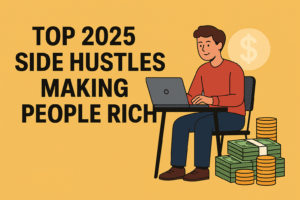AI Tools Transforming Jobs in 2025: A New Era of Work
AI tools are revolutionizing the workplace in 2025, transforming roles across industries from healthcare to finance. While some jobs are being replaced, new opportunities are emerging, emphasizing the need for upskilling and human-AI collaboration in the evolving job market.
By Chaka Malema
The year 2025 marks a turning point in the global workforce as artificial intelligence (AI) tools continue to redefine how jobs are performed, managed, and even created. From healthcare and finance to media and manufacturing, AI is no longer a futuristic concept—it is a present-day reality reshaping employment in powerful ways.
At the heart of this transformation is automation, which has advanced far beyond repetitive task replacement. AI-powered platforms now assist in decision-making, predictive analysis, creative processes, and customer service. According to a recent report by the World Economic Forum, nearly 43% of tasks in the average workplace are now influenced or managed by AI systems.
In healthcare, AI-driven diagnostic tools like IBM Watson and Google’s DeepMind are supporting doctors in detecting diseases earlier and more accurately. AI systems are reading scans, identifying anomalies, and offering treatment recommendations—transforming the role of physicians from sole diagnosticians to collaborative decision-makers alongside smart machines.
The financial sector has embraced AI at an even faster rate. Algorithms now handle everything from fraud detection to investment strategies. Robo-advisors, such as Betterment and Wealthfront, have made financial planning more accessible, while also altering the job profiles of financial analysts and advisors who now focus more on strategic consultation than number crunching.
Meanwhile, creative industries once thought safe from automation are also feeling the shift. AI tools like ChatGPT and Midjourney are aiding in content creation, copywriting, and design. While some fear AI may replace human creatives, many professionals are using it as a collaborative partner, boosting productivity and idea generation.
A major concern, however, remains: job displacement. Roles dependent on routine or manual tasks—such as data entry clerks, cashiers, and factory line workers—are increasingly being automated. However, experts argue that while some jobs are vanishing, new ones are emerging. “We’re seeing a rise in demand for AI ethics officers, prompt engineers, machine learning trainers, and data annotators,” says Dr. Lindiwe Mokoena, a technology researcher at the University of Cape Town.
The key, she notes, is adaptability. “Workers who upskill and learn to work alongside AI will thrive. The challenge for governments and employers is ensuring access to these learning opportunities.”
In 2025, AI is not just transforming jobs—it’s transforming how we define work itself. As industries evolve, the partnership between humans and machines is proving to be less a battle for dominance and more a collaboration for progress. The future belongs not to those who resist change, but to those ready to adapt and innovate alongside it.



